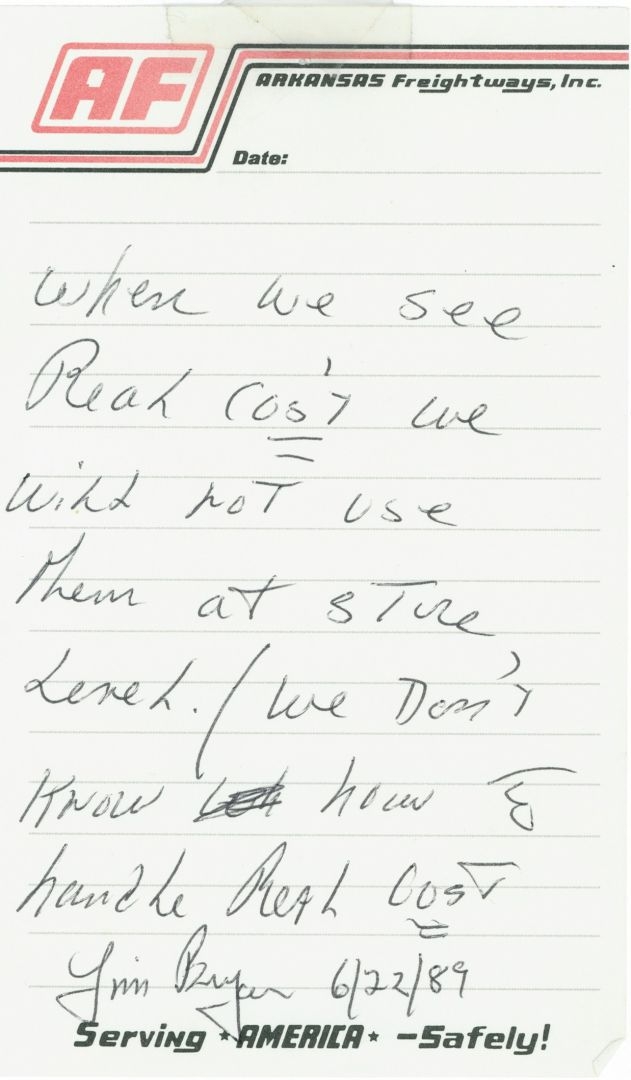Cost models are a special kind of analysis.
You are attempting to determine an approximation of what something costs to make or do. What makes the effort difficult is how complicated the effort becomes because of accounting rules and the assumptions that the models require.
At one point in my career, I thought you could get to a “real” cost of something. However, I learned repeatedly that the cost of something had much to do with decisions people made in the manufacturing or procurement process that guaranteed that the model was inaccurate. I now view costing as an art form, not a science. I view cost models as nothing but a theory on what something costs.
We still need cost models. With them, we get the opportunity to identify all of the costs that go into making something. Simple ones that focus on just the direct costs are the most accurate, as there are fewer assumptions. The allocation of indirect costs becomes overly complex and arbitrary, with decisions made based on logical constructs that may reflect reality, or may not. The more layers of allocated cost in the model, the more distorted the results become when you are attempting to see if the company will make any money on a product or not.
The stories here help illustrate how logical assumptions become arbitrary, or how they can distort the real costs of the business. There are articles on how to construct a product cost analysis or a freight cost analysis, with examples of how to do the work. Simple spreadsheets are for you to play with. You can also learn how to use a basic cost model spreadsheet and how to use it for pricing products based on the cost and not on the market price.
Articles in This Series
Articles in This Series

What Costs Go Into a Cost Model?
What is a Cost? What is an Expense? Over the years, my views on what are costs and what are expenses have changed. My views moved from generally accepted practice to what is actually useful. Read More

Out of Control Cost Models
Final Landed Cost. The inventory managers wanted the model to determine the right distribution flow for each supplier. Various groups within the company challenged the decision-making process, concerned that it might be driven by emotion. Read More

Beyond Cost Models: No Cost Rules
Carlene looked at me and said, “Why are we doing the model? It just makes sense to convert all Vendor Direct to the CDC option.” That was a real change in her point of view. Read More
The Real Cost of Operating a Truck
I came across an interesting infographic about the "Real Cost of Trucking" from The Truckers Report ..... Read More

The Creative Cost Equation: Which Market (Price) Is It Anyway?
Previously, I wrote about Landed Cost and the many ways that hidden supply-chain costs don’t get captured. Now, I’ll focus on another creative costing method: Market Price. Read More

Do You Have P&L Control?
Sometimes I come on a bit too strong. I know I do. It is a nurture issue. I come from a family that is long on opinion, long on brains, and sometimes short on sensitivity. My problem is when I see something that is wrong, I gotta point it out. Read More

Healthcare: Cost-Checking the USA vs. the Rest of the World
Let's break down the invoice I received for my surgical procedure in a German hospital: Read more

The Creative Cost Equation: I’ll Take Two Scoops—Sales Cost
In previous articles, I’ve explored some of the various cost equations that exist in business today, of which there are at least six. Read More

Assets & Resources
People get assets and resources mixed up. Business managers, politicians, customers, and academics tend to use the terms interchangeably. Read More
The Creative Cost Equation: Here’s a Little Story of the Lost Landed Cost
When it comes to a product’s sell price, which costing method does your company employ to set the price? And is it the same for every item in your inventory? Read More

Value – Add….. or Subtract (From Your Revenue)
When it comes to your customers, are you a yes company? The mantra that the customer is always right is incorrect. Read More


